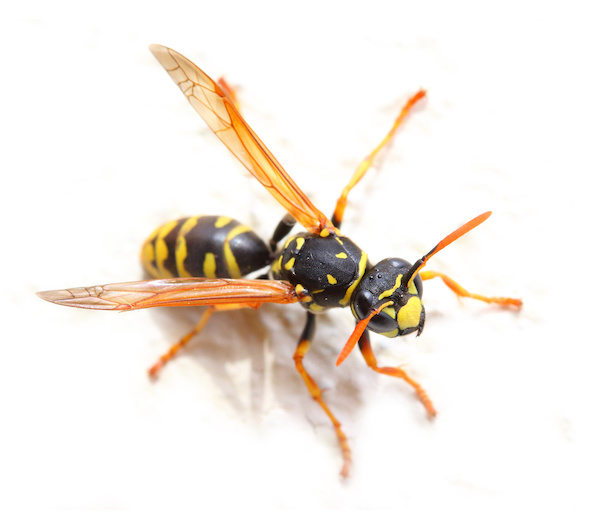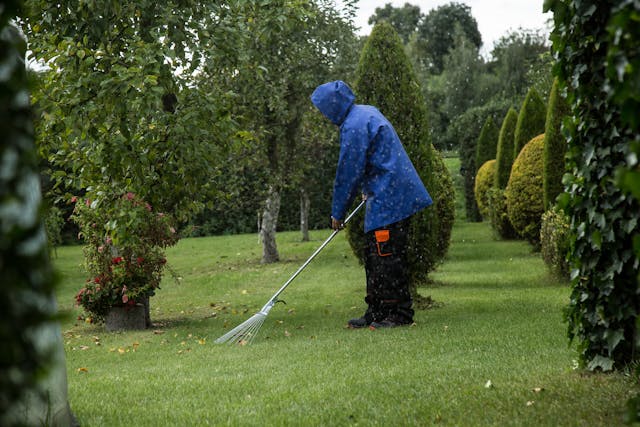A thriving garden is a source of pride and joy, but nothing ruins your hard work faster than pests munching away at your plants. Whether it’s aphids clustering on stems or caterpillars carving holes into your prized leaves, these uninvited guests can wreak havoc on your greenery.
It’s important to take a proactive approach to protecting your garden from pests and keeping your plants thriving. Let’s explore how to effectively identify, manage, and prevent common pests in your garden.
Know the Culprits: Common Pests in Your Garden

Before you can protect your garden from pests, you need to know who’s causing the trouble. Some of the most common offenders in South Carolina gardens include:
- Yellow Jackets: These aggressive wasps can build nests in garden areas, making it dangerous to work around your plants. Their stings can cause allergic reactions, and their nests can discourage you from using certain areas of the garden.
- Snails and Slugs: These slimy pests feast on soft, tender plants, leaving holes and damaged foliage behind. They thrive in damp conditions and can quickly decimate a garden if left unchecked.
- Stink Bugs: Stink bugs feed on a wide range of plants, causing damage by sucking out plant juices. This leads to wilting, discoloration, and distortion of leaves and fruit.
- Earwigs: These pests feed on a variety of plants, including flowers, vegetables, and fruit. They tend to hide in moist soil and debris during the day and come out at night to feed.
- Kudzu Bugs: These pests feed on plant sap and can harm a variety of garden plants. They tend to gather in large numbers and damage crops, especially during the warmer months.
Inspect your garden regularly to spot these pests early. Look for signs like holes, curling leaves, sticky residue (honeydew), or webbing. A magnifying glass can help you spot smaller invaders while using a pest identification guide will give you the knowledge to act quickly.
Good Garden Hygiene: Your First Line of Defense

Prevention is always better than cure, and good garden hygiene is essential for keeping pests at bay. Here are some simple steps you can take:
- Clear Debris: Fallen leaves, weeds, and plant debris provide hiding spots for pests. Clean your garden regularly to minimize their shelter.
- Trim Overgrowth: Dense, overgrown plants make it easier for pests to hide and multiply. Prune plants to improve air circulation and reduce pest-friendly zones.
- Water Wisely: Overhead watering creates a moist environment that encourages fungal diseases and attracts pests. Water at the base of plants to keep foliage dry.
- Crop Rotation: If you grow vegetables, rotate your crops each season to prevent soil-borne pests and diseases from building up.
Maintaining a tidy, organized garden creates a less inviting environment for pests.
Physical Barriers: Keep Pests Out
Sometimes, the most straightforward solutions are the most effective. Physical barriers can shield your plants from pests, allowing them to grow unharmed. Here’s how to use them:
- Row Covers: Lightweight fabric covers protect plants from flying insects like whiteflies and beetles.
- Netting and Fencing: These barriers keep larger pests like rabbits and deer from nibbling on your crops.
- Sticky Traps: Place these around your garden to catch flying insects before they can cause damage.
- Pheromone Traps: These specialized traps lure pests using their natural attractants, reducing their population.
Barriers are especially useful for high-value plants or crops that are particularly vulnerable to pests.
Monitor Your Garden Regularly
One of the best ways to protect your garden from pests is to keep a close eye on it. Weekly inspections can help you catch problems early before they spiral out of control.
- Check for Damage: Look for holes, discolored leaves, or drooping plants.
- Spot Pests: Search for insects on the undersides of leaves, along stems, and in the soil.
- Track Your Efforts: Keep a journal of what pests you’ve encountered and how you’ve addressed them. This record will help you refine your pest control strategies over time.
Regular monitoring saves your plants and helps you become a more informed and proactive gardener.
Why DIY Solutions Often Fall Short

While home remedies and organic treatments can help reduce pest populations, they may not be enough to tackle large-scale infestations. Many pests reproduce quickly, and their eggs often go unnoticed. Missing just one infestation can lead to recurring problems.
That’s where professional pest control comes in! A trusted service like Action Pest Services can provide the expertise and tools needed to eliminate pests effectively. Our professional solutions offer peace of mind and lasting results from targeted treatments to long-term prevention strategies.
Protect Your Garden with Action Pest Services
Your garden is an investment in beauty, food, and relaxation and deserves the best protection. At Action Pest Services, we specialize in helping Simpsonville and the Upstate area safeguard their gardens from pests.
Dealing with pests in your garden can be frustrating, but it’s a challenge you don’t have to face alone. Contact Action Pest Services today to schedule a consultation and take the first step toward a pest-free garden. Your plants—and your peace of mind—will thank you!
